until Abu Dhabi Autonomous Racing League

While it’s still to be officially confirmed from the manufacturer's side, Yamaha MotoGP boss Lin Jarvis has indicated he will take a step back at the end of the 2024 season, handing over the reins of the team to someone else for the first time in nearly three decades as the 66-year-old moves towards retirement.
Jarvis first took over the team in 1998, and since then has helmed Yamaha to eight world titles in his 26 years in charge. He was the mastermind behind Valentino Rossi’s defection from Honda that yielded four titles, and Jarvis’ decision to sign up a young Jorge Lorenzo brought three more - before Fabio Quartararo’s promotion secured the 2021 crown.
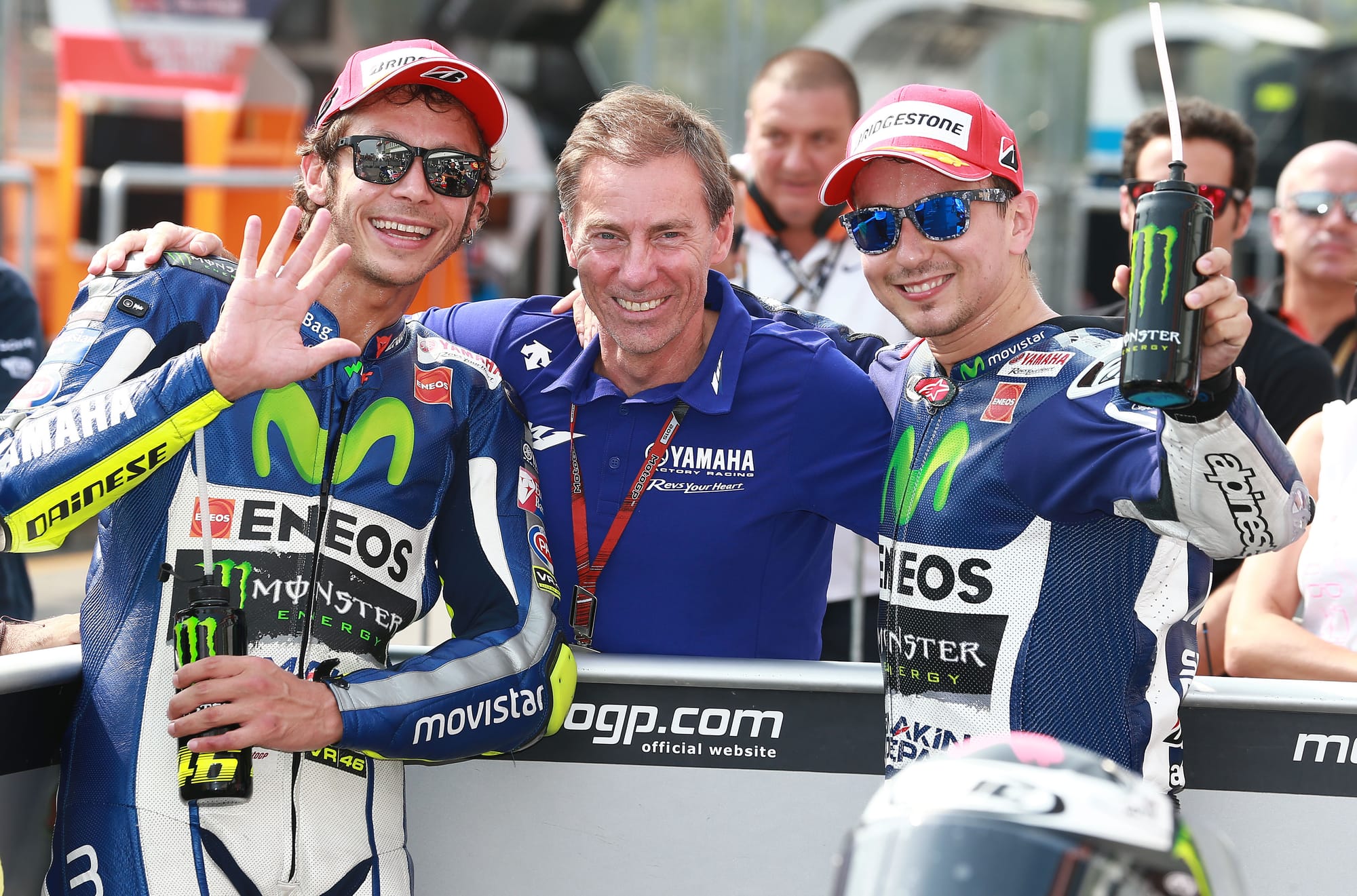
Yamaha’s change in leadership comes at a particularly perilous time for the team, too, as the firm in a wholescale reorganisation of its racing department as part of its efforts to get back to winning ways, meaning that choosing a worthy successor to the veteran Brit is a high-stakes task.
And while it seems that there’s already something of a shortlist within Yamaha’s hierarchy, that doesn’t necessarily mean that it’s going to be the easiest decision when it comes to electing a successor to Jarvis after all this time.
Massimo Meregalli
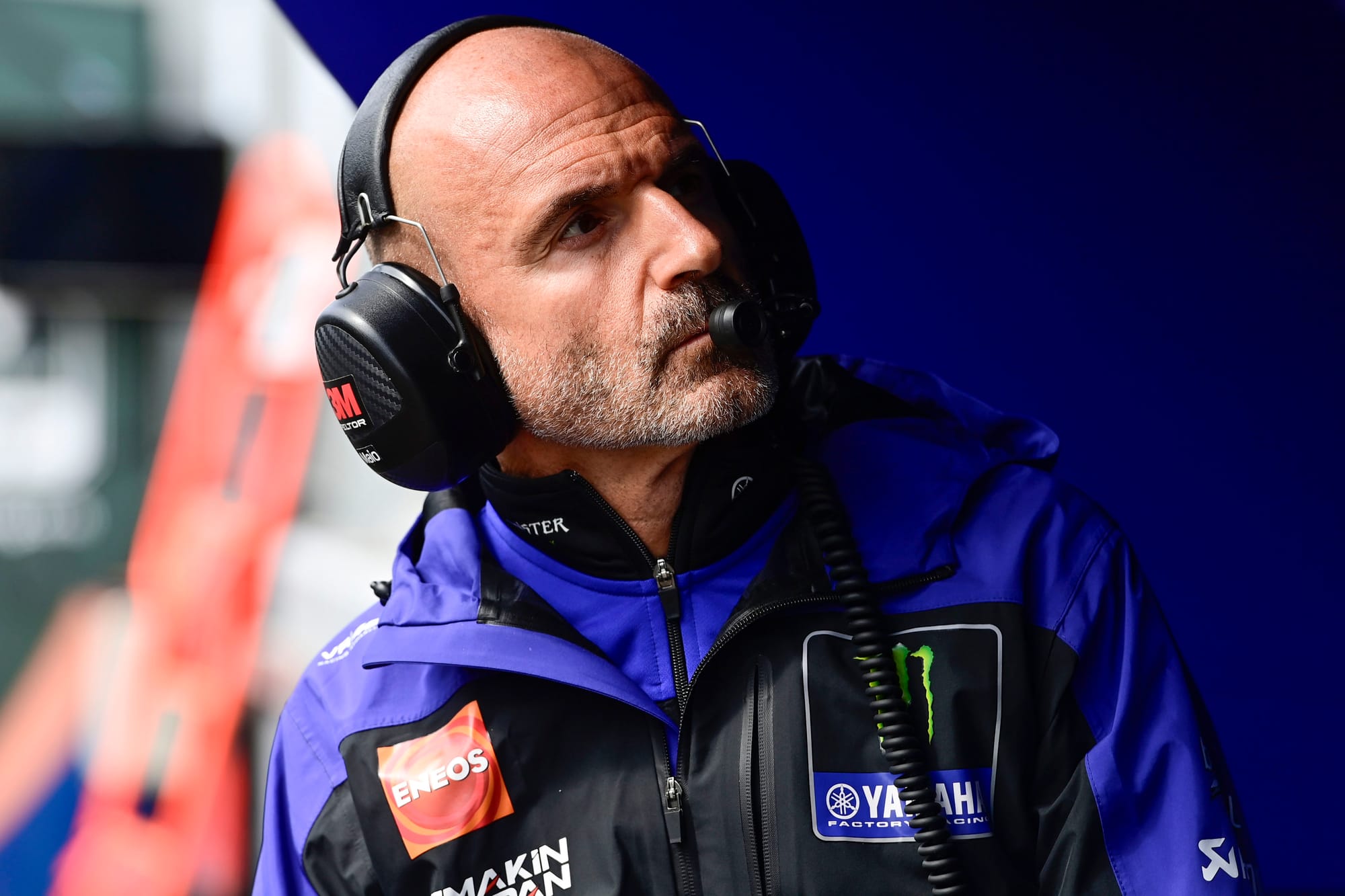
On initial assessment, team manager Maio Meregalli is perhaps the most sensible name to step up from within the Yamaha ranks and take over from his current boss.
The Italian ex-racer has been an integral part of the team’s structure for years and is undoubtedly more qualified than anyone else when it comes to understanding how things currently work.
He’s also been a key component of Yamaha current rebuilding campaign and brings the additional knowledge not just of how things work right now but the direction in which they’re going in the future - something doubly important given the upcoming rule changes in 2027.
However, there’s one big disadvantage for Meregalli. Without question a tactical master, he’s got less experience of the corporate strategy side of things, thanks to his role focusing on what happens on track rather than how a team gets to the circuit in the first place. He’s a racer first and foremost, not a businessman, and that might count against him for a CEO-type role.
Paolo Pavesio
Believed to be the current lead candidate for the role, Paolo Pavesio’s name will be something of an unknown to many fans thanks to a somewhat behind-the-scenes career with Yamaha to date.
A Yamaha employee for 20 years, he’s worked his way up through the ranks of first Yamaha Italy and then the European organisation to get to his current position of marketing and motorsport director, a role that gives him overall control of Yamaha Europe’s racing operations (which entails superbike and off-road racing rather than MotoGP) but little in the way of hands-on experience in the paddock.
And while being a Yamaha corporate man through and through might come as a blessing in some regards, the vacancy comes at a time when we’ve seen the current leadership trying to break the mould a little and make the team work in a more European and less Japanese way - which might not be an easy baton to pick up for someone who’s spent most of his career at the executive level of the company.
Livio Suppo
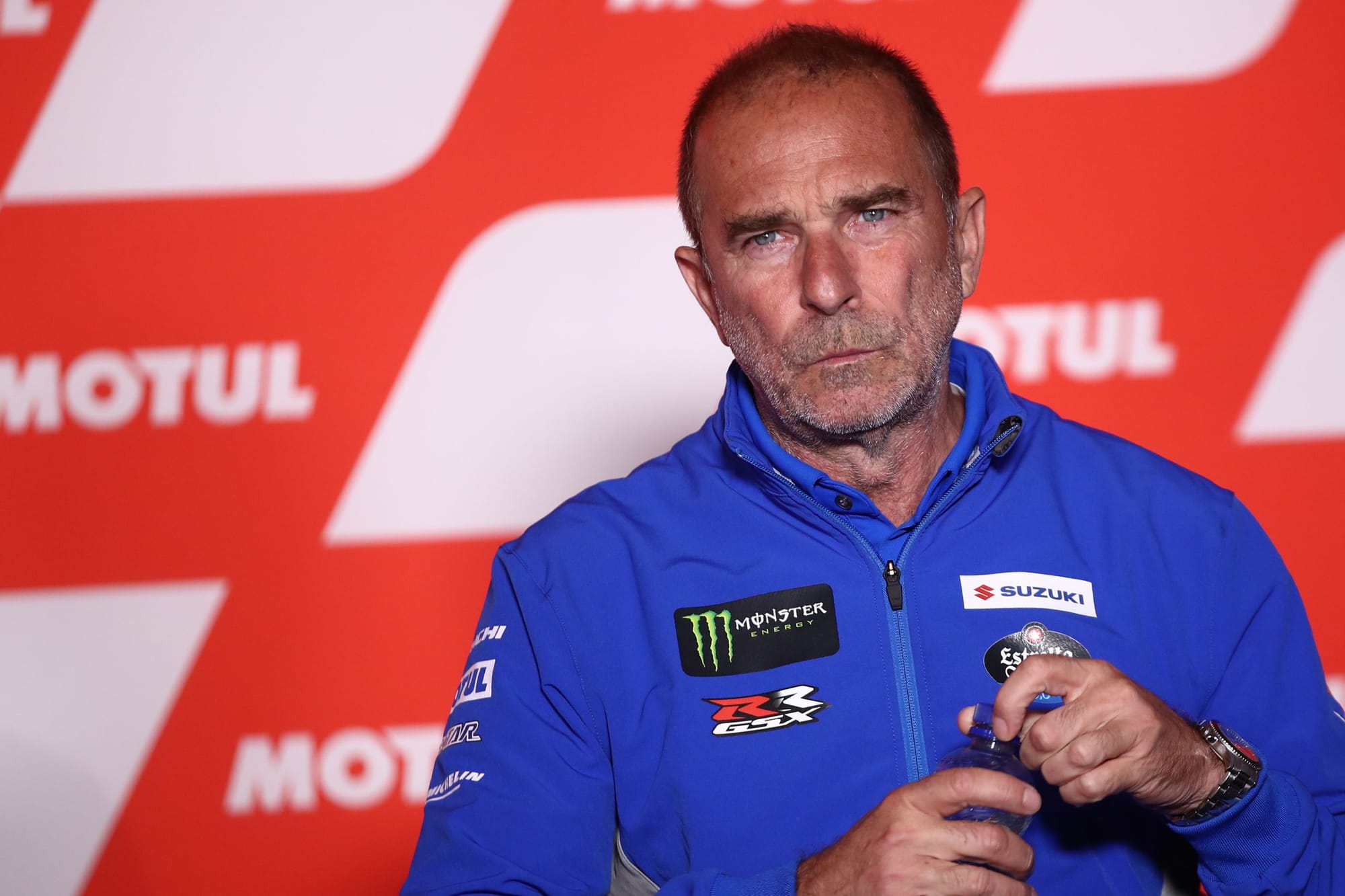
When it comes to experienced names who are currently on the market and who could be tempted by Yamaha, there’s surely none more successful than former Ducati, Honda and Suzuki team boss Livio Suppo, who’s been working as a consultant for the Italtrans Moto2 team since Suzuki’s unexpected departure from MotoGP at the end of 2022.
A race-winning team boss with three different factories and someone who’s certainly never had any problems in making his Japanese bosses listen to his point of view and deliver what his team needs, he ticks many of the boxes in what Yamaha is looking for with both his experience and his personality.
The biggest question mark around him, in fact, might be just how much Yamaha wants to disrupt things by introducing Suppo to the box. Very different from Jarvis in how he runs a team and with a lot of substantial change going on already in other parts of their structure, it might be that Japan thinks introducing a character like Suppo might be too big of a change too soon.
Andrea Dosoli
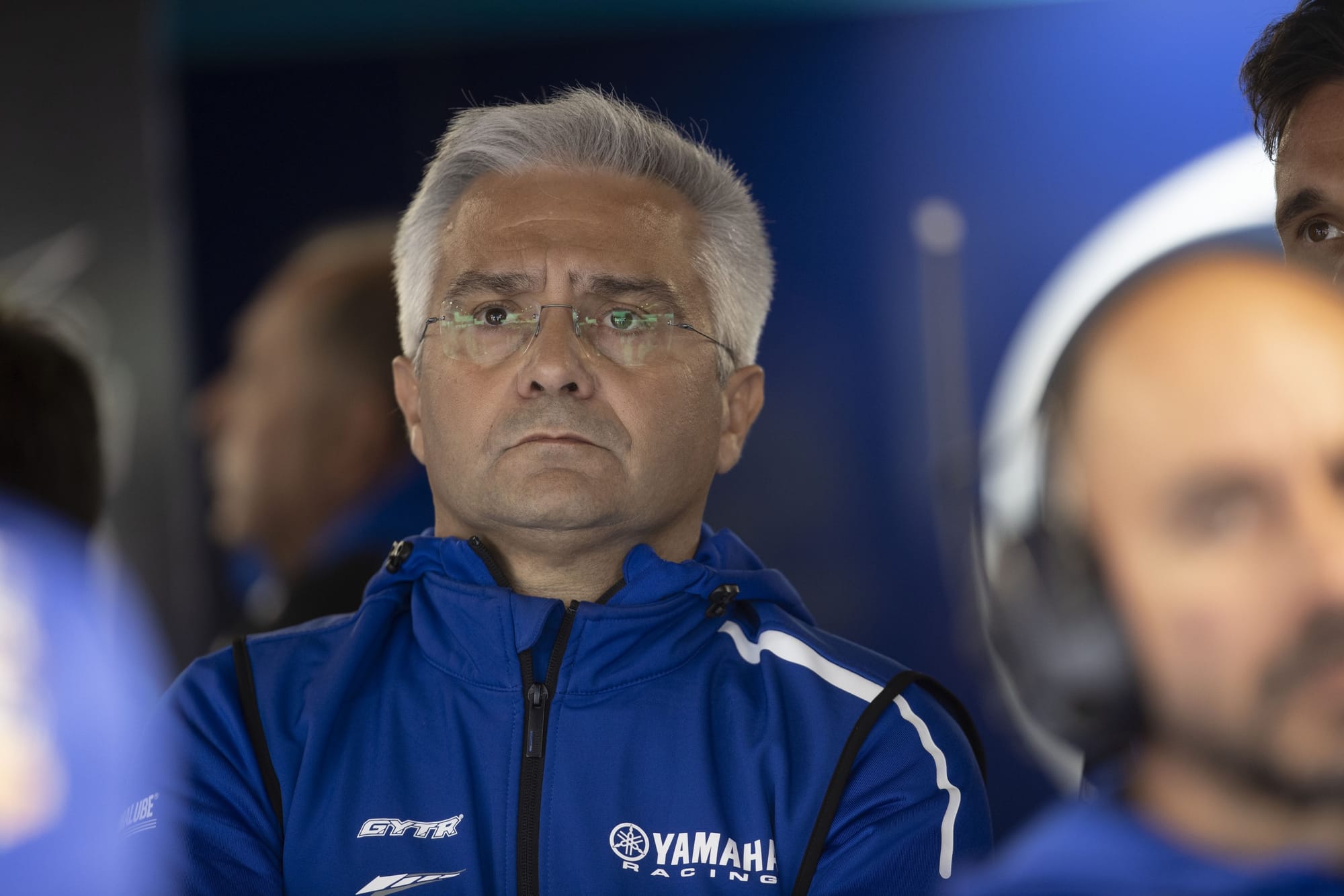
While the majority of attention naturally falls on the highs and lows of Yamaha’s MotoGP effort, it's managed in recent years to resurrect its production bike racing program into something very successful indeed - and a lot of the credit for doing so comes thanks to veteran boss Andrea Dosoli.
Involved with Yamaha's superbike teams since before the introduction of the current Yamaha R1 in 2015, Dosoli’s leadership since then has brought a World Superbike title with Toprak Razgatlioglu, four consecutive Suzuka 8 Hour successes, and multiple national titles in the UK, America and Japan.
Bringing a good mix of both Yamaha experience and a history of running successful race teams, he would fit the box well for a promotion to MotoGP - that is, if Yamaha wants to disrupt a World Superbike effort that’s also in the process of rebuilding itself, with six-time champion Jonathan Rea as its spearhead following Razgatlioglu's exit.
Johan Stigefelt
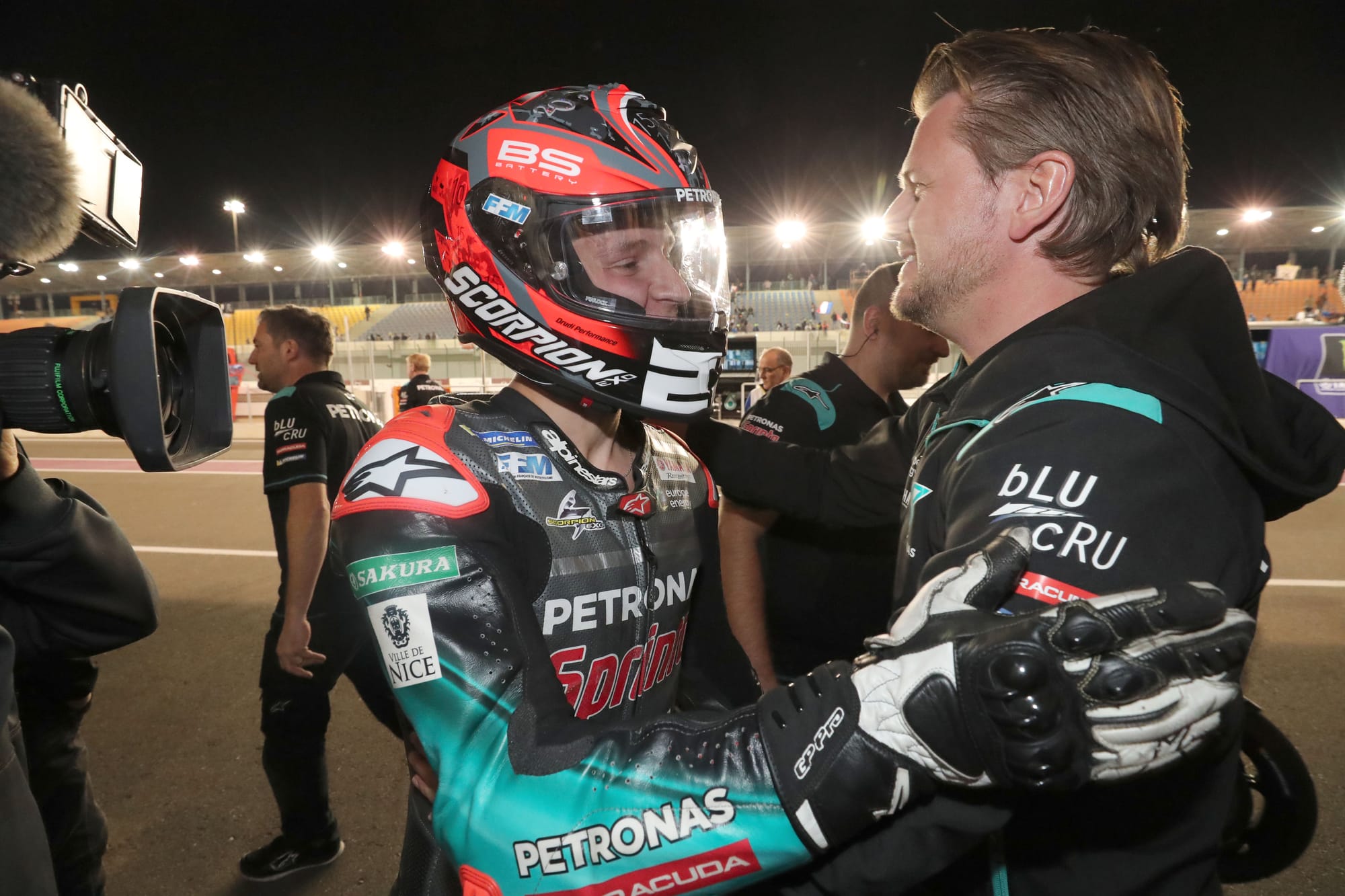
Perhaps a left-field candidate given his relative lack of premier-class experience, another name who might nonetheless find himself in consideration is former Petronas Yamaha team director Johan Stigefelt, given that he not only knows how to run a MotoGP team but also knows how Yamaha works thanks to his time heading up its satellite squad.
Someone who would certainly come with the blessing of Quartararo thanks to their still-close relationship from ever since their hugely successful days together at the Malaysian satellite team, there’s likely to be some recognition given to the Swede’s success both at discovering the future world champion in 2019 and his subsequent efforts to build a strong satellite team for Yamaha.
The number one thing that’s likely to count against him, though, is a lack of factory experience - which could mean that he isn’t deemed accomplished enough for a programme currently in a crucial phase.

